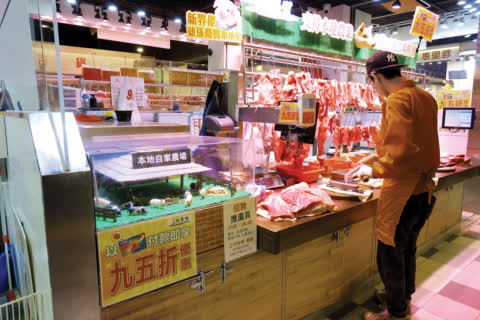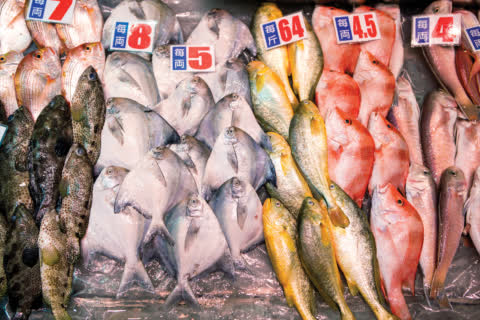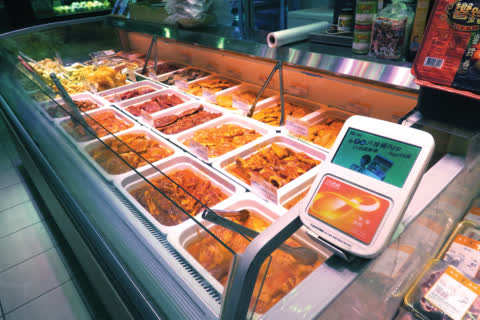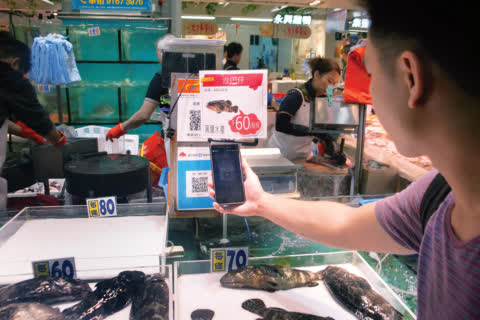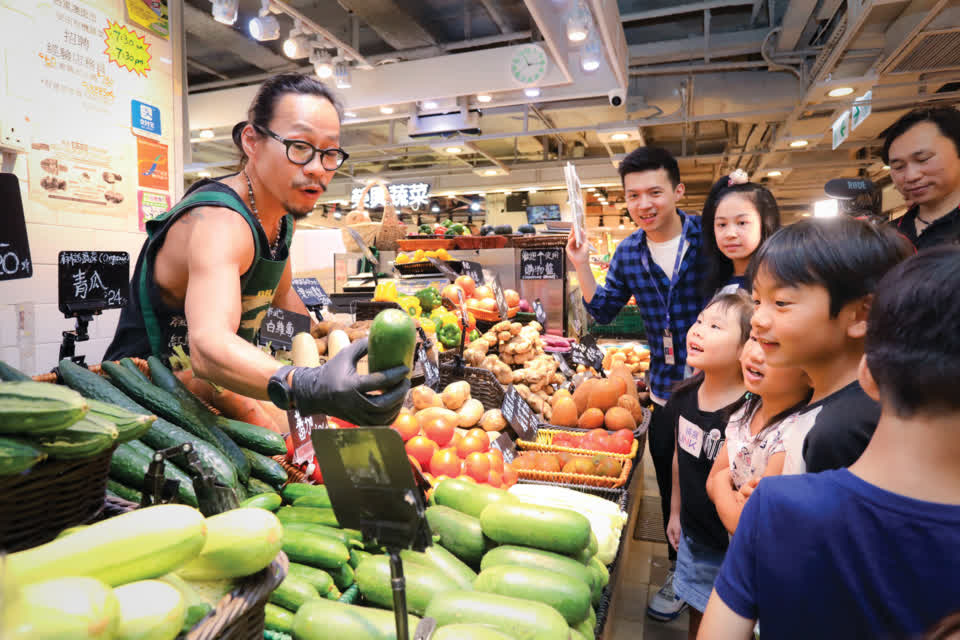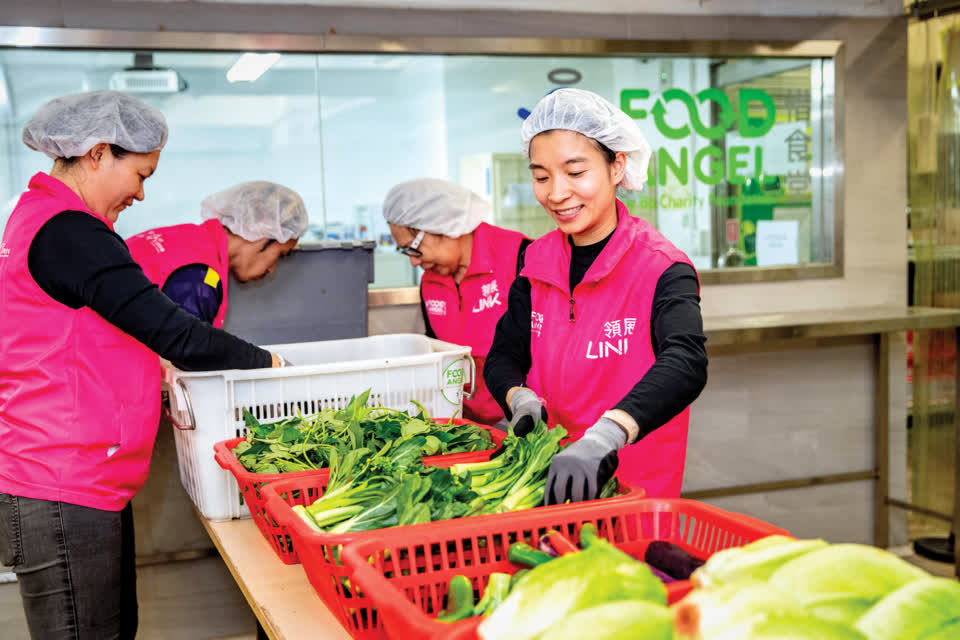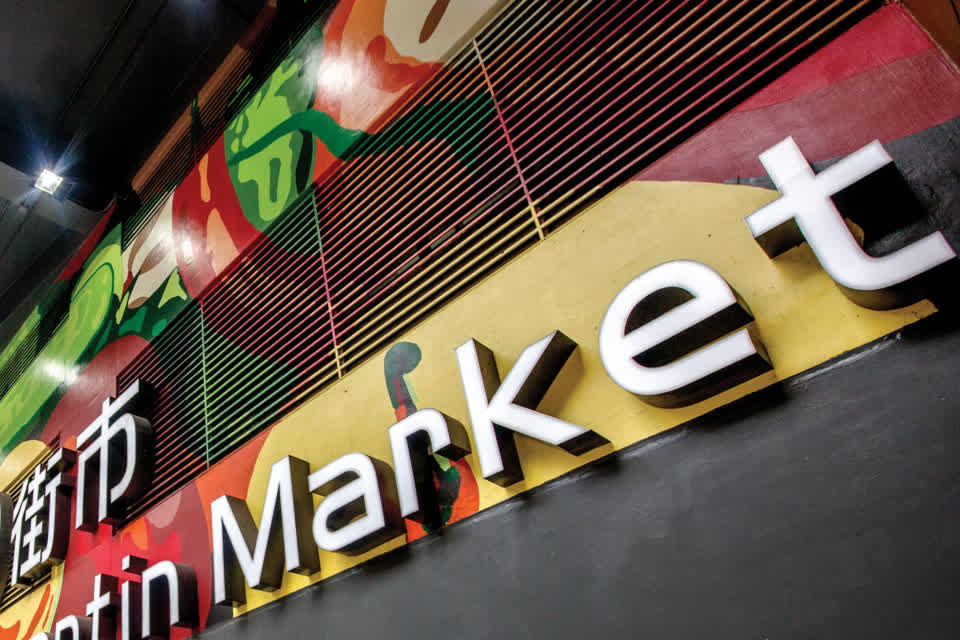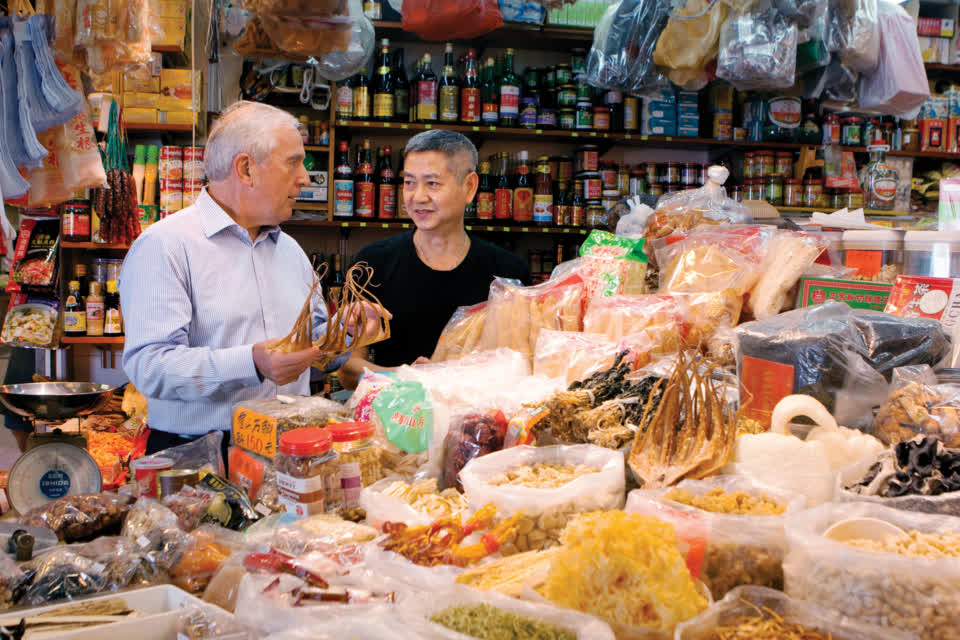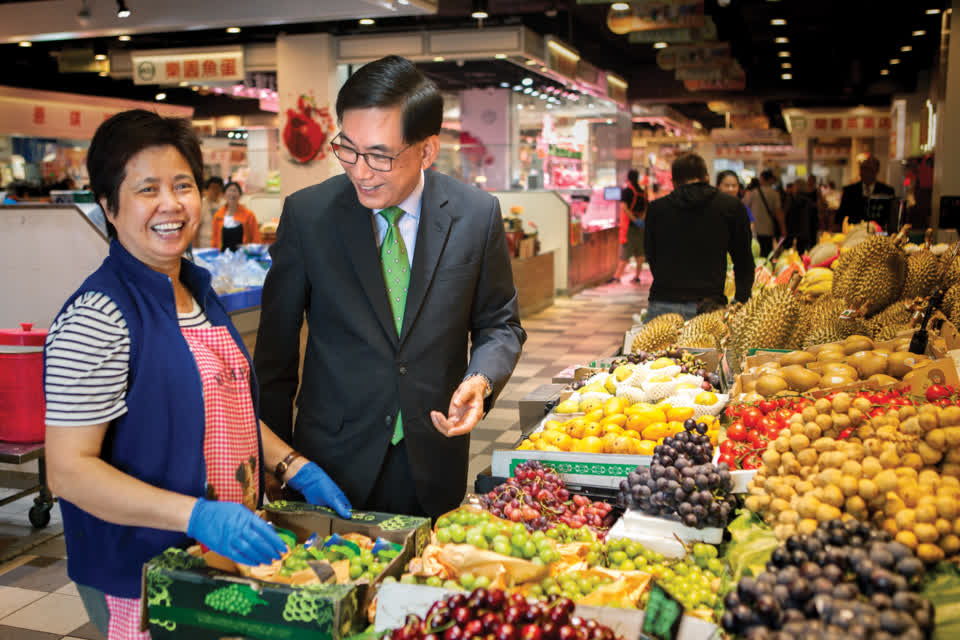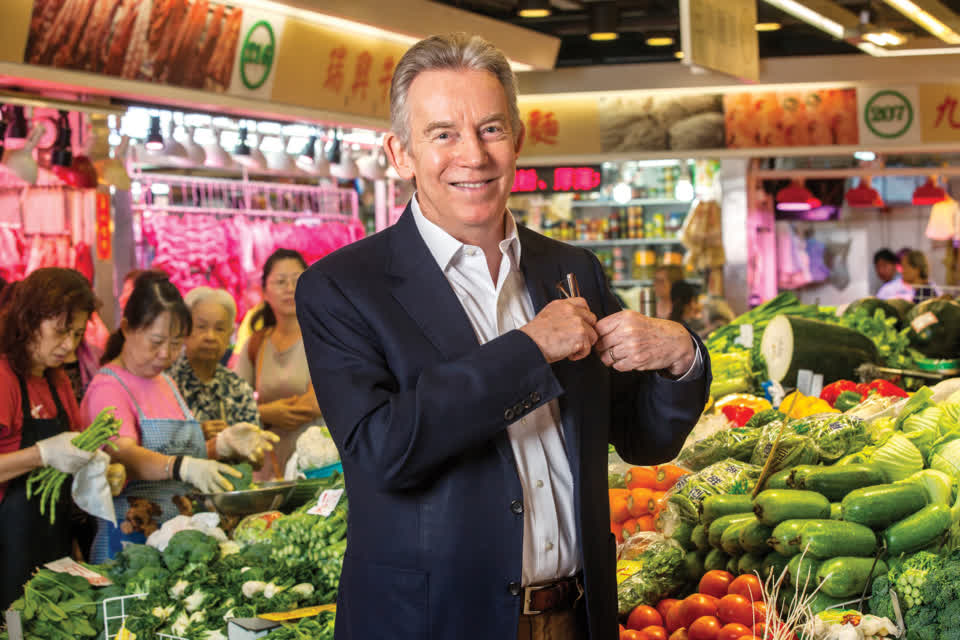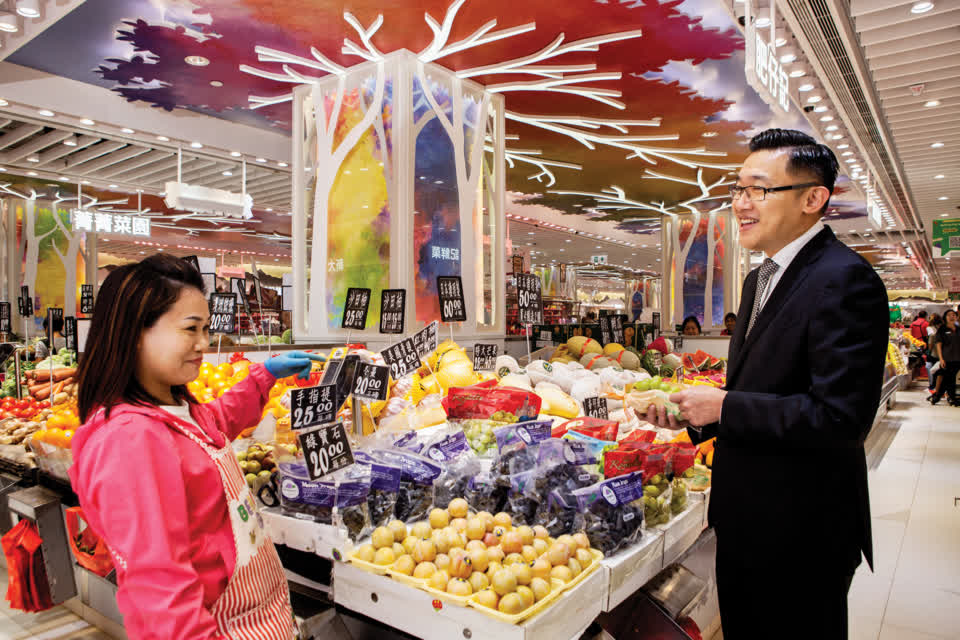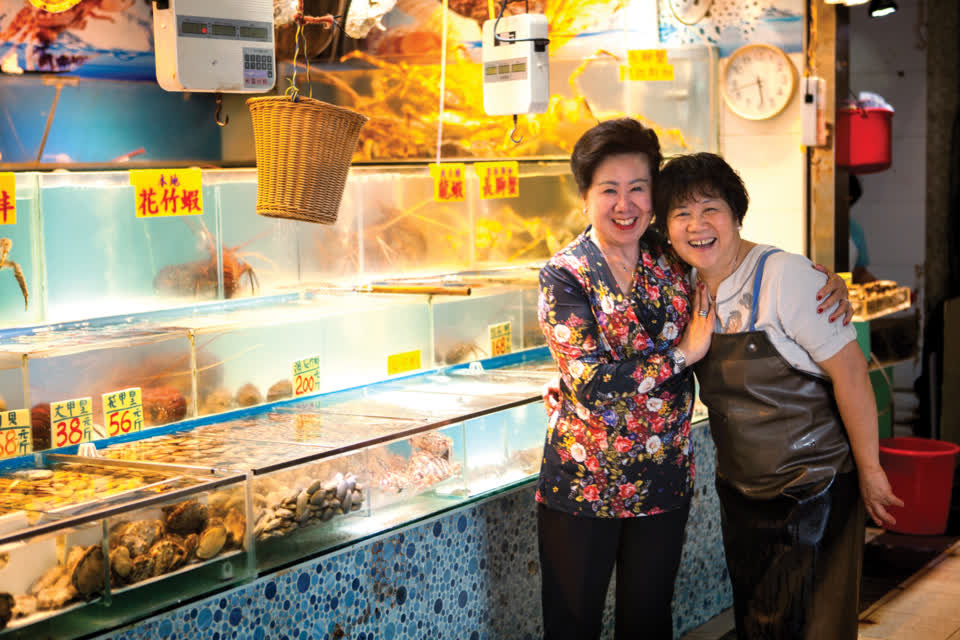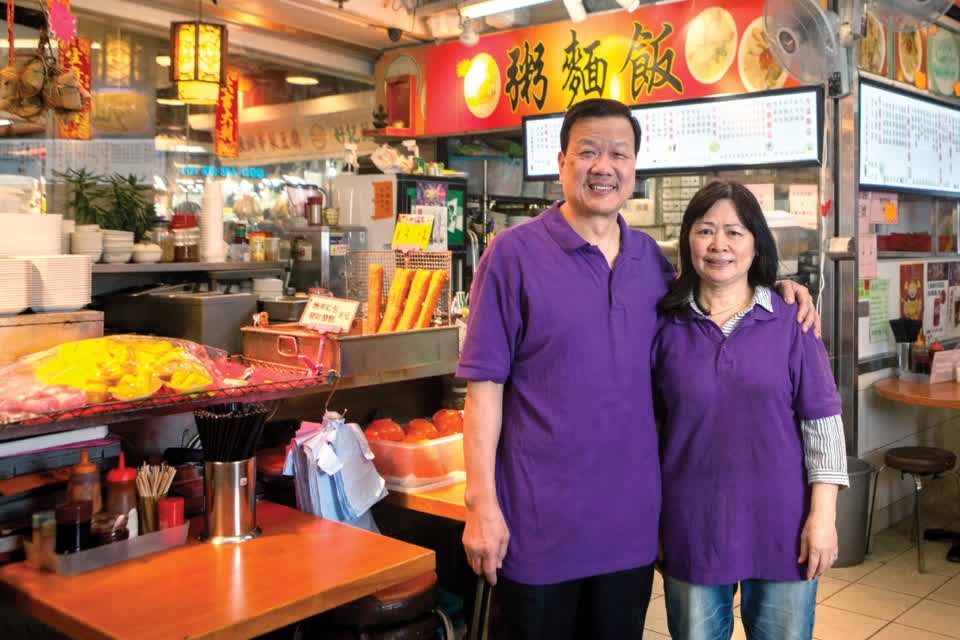In the past few years Link has added several electronic and mobile payment options, from Octopus to AlipayHK and Wechat Pay, because these methods are increasingly used by consumers. Link has helped and encouraged its tenants to install the equipment to do so.
“When we first started, it was a challenge to get tenants to put this equipment in, but it is obviously more hygienic for our shoppers,”
says Hongchoy. “Rather than the stallholder cutting your fish, putting it in a bag and giving you some wet change, now we can use an Octopus card.”
Link needed to make the new technology easy for the tenants to operate.
“The vendors are busy preparing and selling, and when business is very good, sometimes the process of going through electronic payment might take the user a little more time. You know there’s no barcode on a fish. Unlike going to a convenience store, where you can just put the barcode through a scanner, fruits and vegetables and all these fresh foods do not have barcodes. We needed to make sure that the weighing scales the tenants use are connected to the Octopus machine or other e-payment machine so that they can actually save time in terms of input and things like that. We discussed with the vendors how we could best set these things up.”
Octopus Cards Limited (OCL) has partnered with Link to provide payment services in the markets since 2011, aiming to make everyday life easier for both stall operators and customers. The company is headed by CEO Sunny Cheung.
“Our service is particularly suitable for use in these markets as most of the transactions are for small amounts,” he says. “Nonetheless, we faced a number of challenges, both technical and behavioural, when we first introduced Octopus payment in the markets.
“On the technical side, it is essential to have broadband network coverage inside the fresh market for traditional offline Octopus payment service. Therefore, we spent tremendous effort on network infrastructure enhancement, wiring the broadband network through to individual stalls, to ensure system stability before the launch of our Octopus service.”
While technical challenges were straightforward to overcome, behavioural changes and misconceptions about electronic payments needed more time and effort before the stall operators and customers were convinced of the advantages of embracing Octopus payment.
“One thing in particular, at the beginning: an overwhelming majority of them preferred cash due to the perceptions of its convenience. Also, the stall operators preferred to have more cash on hand helping their cash flow.”
This “cash is king” attitude prevailed particularly among the market tenants, with the misconception that cash is free. Little were they aware that handling cash involves costs – time cost in banking the cash, bank charges for depositing cash, security costs, and so on. Also, a high percentage of customers at the markets were housewives and elderly people who preferred using cash.
To increase the acceptance of Octopus payment in the markets, the company carried out marketing and educational efforts highlighting the tangible benefits of Octopus payment. They also held promotions by offering incentives and discounts to both the stall operators and customers.
Stall operators now broadly agree on the convenience benefit, and as a bonus they can avoid the risk of receiving fake banknotes. They also save the costs involved in handling cash. Customers can pay the exact amount of their purchases by simply tapping their Octopus card on the reader, without the need to handle any change.
“The fresh market is a unique use case, but fortunately for us, there were minimal technical challenges in the introduction of e-payment,”
says Jennifer Tan, CEO of AlipayHK.
“We made two key observations. The first was that the consumption model of shoppers in fresh markets is low in transaction amount but high in frequency. The second observation was that stall owners generally faced a hygiene issue in dealing with food and money at the same time. For example, shoppers expressed their frustrations over handling fish stall owners’ banknotes that smelt strongly of seafood. Not only is this generally unpleasant, they also worried the scent would stain their possessions such as wallets.”
To tackle this problem, they introduced a system called AlipayHK Merchant Code to the market. This QR code is printed on a piece of paper and works without any installation fee or transaction fee. The only device needed by stall owners is a mobile phone. Upon receipt, there will be a voice message to notify the merchants. The system’s ability to handle money and food separately has allowed for improved hygiene.
“We were pleasantly surprised by the vendors’ enthusiasm towards these changes,”
Tan says. “Like us, they saw the benefits of adopting e-payment and were particularly open to a more efficient, convenient and coin-free trading model. One stall owner told us that after accepting e-payment, within a month, an average of three to four shoppers out of 10 would use AlipayHK consistently.”
This success can be reflected in the decision to make AlipayHK available in over half of Link’s fresh markets.
“When the service was first rolled out, the more senior shoppers did need a little time to familiarise themselves with the technology. However, once they understood the principles, transactions were smooth and everyone seemed to be happy to add fresh markets to their list of e-wallet usage scenarios.”
Both Cheung and Tan believe that this smarter method of payment can attract younger users to shop in the markets as well.
The scope of this new technology goes some way beyond e-payments, says Cheung.
Ling is one operator who has put such programmes into practice.
“We thought that if we want to revitalise and upgrade the markets, we need to improve with time, and know what the customers want and need,” he says. “So firstly, we markets have to provide what supermarkets can provide. Hence our markets introduced a membership programme. As shoppers like to join membership schemes in supermarkets to collect points and exchange them for free gifts, we want to do the same.
“We have some plans for improvement. In our loyalty programme, right now we’re still using physical membership cards, which we will phase out in favour of using an app – enabling customer relationship management through people’s mobile phones, and offering more convenience for our members.”
